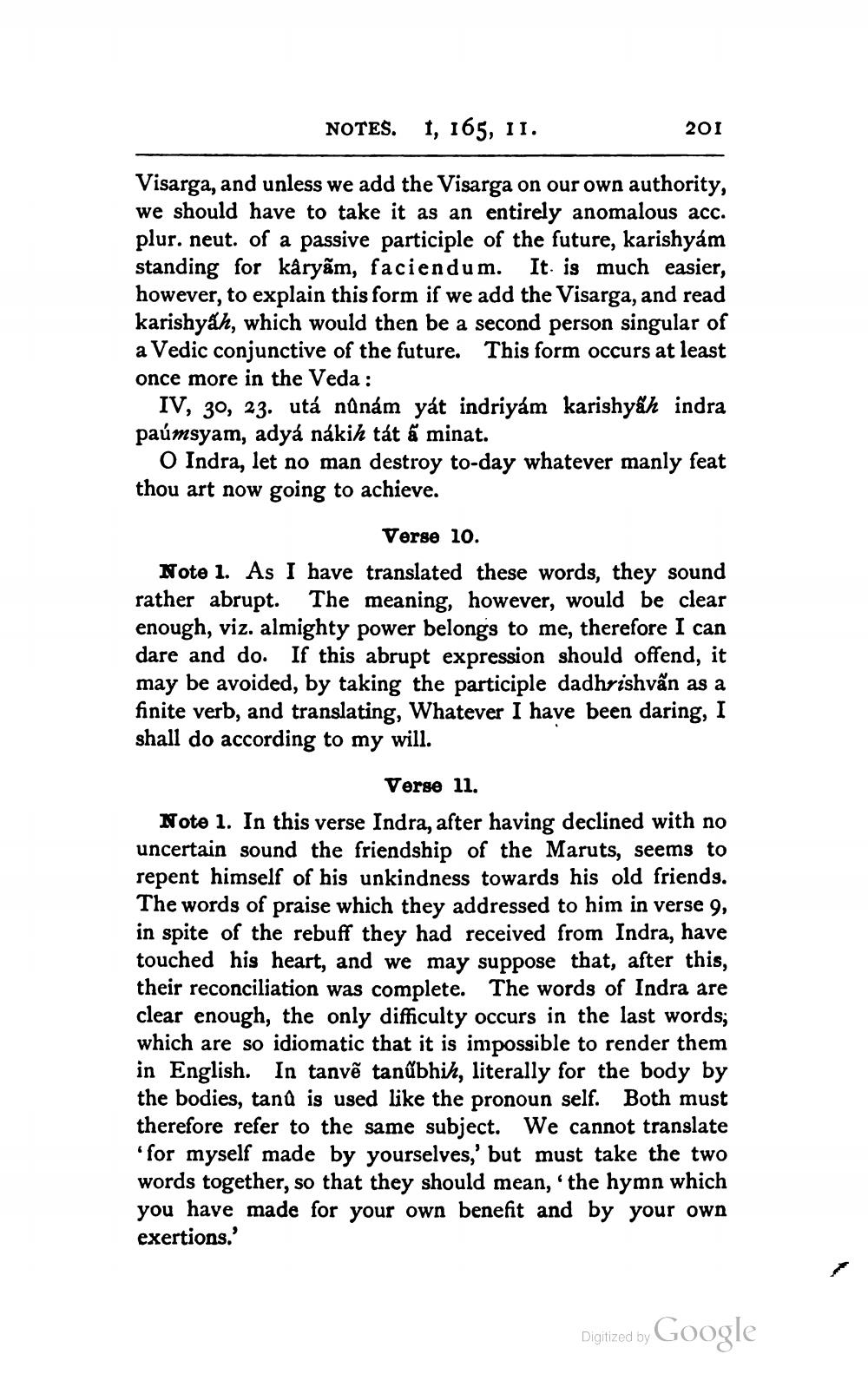________________
NOTES. 1, 165, 11.
201
Visarga, and unless we add the Visarga on our own authority, we should have to take it as an entirely anomalous acc. plur. neut. of a passive participle of the future, karishyam standing for kâryâm, faciendum. It is much easier, however, to explain this form if we add the Visarga, and read karishyah, which would then be a second person singular of a Vedic conjunctive of the future. This form occurs at least once more in the Veda :
IV, 30, 23. utá nànám yát indriyám karishyah indra paumsyam, adya nákih tát a minat.
O Indra, let no man destroy to-day whatever manly feat thou art now going to achieve.
Verse 10. Note 1. As I have translated these words, they sound rather abrupt. The meaning, however, would be clear enough, viz. almighty power belongs to me, therefore I can dare and do. If this abrupt expression should offend, it may be avoided, by taking the participle dadhrishván as a finite verb, and translating, Whatever I have been daring, I shall do according to my will.
Verse 11. Note 1. In this verse Indra, after having declined with no uncertain sound the friendship of the Maruts, seems to repent himself of his unkindness towards his old friends. The words of praise which they addressed to him in verse 9, in spite of the rebuff they had received from Indra, have touched his heart, and we may suppose that, after this, their reconciliation was complete. The words of Indra are clear enough, the only difficulty occurs in the last words; which are so idiomatic that it is impossible to render them in English. In tanvẽ tanűbhih, literally for the body by the bodies, tand is used like the pronoun self. Both must therefore refer to the same subject. We cannot translate 'for myself made by yourselves,' but must take the two words together, so that they should mean, the hymn which you have made for your own benefit and by your own exertions.
Digitized by
Digitized by Google




